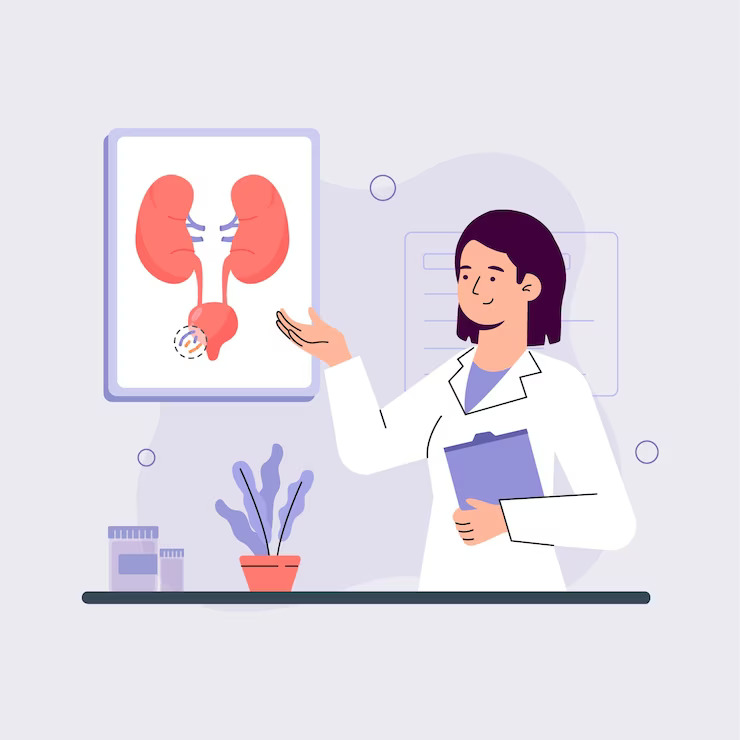The kidneys are two bean-shaped organs located in the back of the abdomen, on either side of the spine. They are part of the urinary system and perform several vital functions in the body. The main function of the kidneys is to filter waste products and excess fluid from the blood and excrete them from the body as urine.
Kidneys also produce hormones to regulate blood pressure and manage the production of red blood cells. Besides that, the kidney can also activate a type of vitamin D to help the body absorb calcium.
Since the kidney performs multiple activities, at times, it can also stop functioning properly when it gets affected by certain diseases. So what are these diseases? Let’s find out!
Table of Contents
Different Types of Kidney Diseases
According to the doctors from the best hospital for kidney transplant in India, there are several kinds of diseases that affect the kidneys. These are:
Kidney Stones
Kidney stones are a common type of kidney issue. This takes place when all the minerals and various other substances present in the blood get crystalised in the kidneys. This leads to the formation of solid stones or masses. Kidney stones generally come out of a person’s body through urination.
UTIs [Urinary Tract Infections]
Urinary tract infections [UTIs] are bacterial infections that can occur in any area of the urinary section. Infections in the urethra and the bladder are pretty common in people. You can also get them treated easily, and they do not cause severe issues. But leaving it untreated can spread the infection to the kidney and lead to kidney failure.
Glomerulonephritis
This is an inflammation that occurs in the Glomeruli. These are small structures that are present inside the kidneys and are known to filter the blood. Glomerulonephritis is mainly caused because of disorders, drugs or infections, and the condition gets better by itself.
Fabry Disease
This is a rare genetic condition that is passed down to a person through his/her family. Fabry disease might not only affect the kidneys but also other organs in the body, such as the brain and the heart. The condition reduces the blood supply to all these organs and can also lead to kidney failure if it becomes more severe.
Cystinosis
Doctors from the best hospital for kidney transplant in India have said that “cystinosis” can also affect the kidneys. This is a rare condition where the natural chemicals known as “cystine” build in the body and cause health issues. People who suffer from this condition have to take medications that can lessen the level of cystine in their bodies. They might also need a kidney transplant. The condition is genetic, and it’s diagnosed mostly in babies.
IgA Nephropathy
This is a disease that causes the proteins made by the immune system to get built up in the kidneys. It damages all the tiny filters present in the kidneys, which clean the blood.
The damage is said to take many years to develop, and people who suffer from IgA Nephropathy might not know they have it. Over time, the condition may lead to kidney failure. There is currently no cure available for IgA nephropathy, but there are some medications that can slow the damage to the kidneys.
Polycystic Kidney Disease
This is a type of condition that is genetic and leads to the formation of multiple cysts in the kidneys. These cysts will cause issues in the kidney and will make it difficult to function properly.
It is also important to remember one thing, individual kidney cysts are common, and they are not that harmful.
Summing Up
The kidneys do a lot of work to ensure that the body is completely healthy. Filtering out all the excess water to produce a certain type of vitamin D can help the body function properly.
But at times, the kidneys, too, stop functioning properly after they’re affected by certain conditions or diseases. If the symptoms look serious it is recommended to consult your doctor.
Read more health blogs about:

